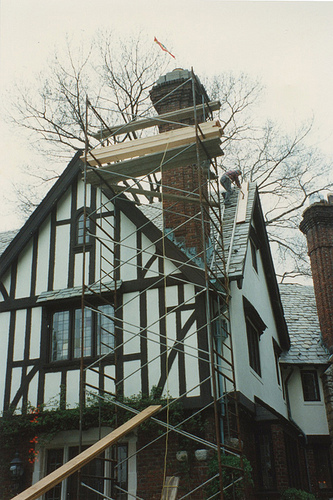UK households spent an estimated £484 each week during 2011, with the majority of this capital being invested in necessary items such as food, drink and the repayment of bills. While these costs are often instantly recognizable and easy to plan for, however, what about those associated with repairing an unexpected fault or defect within your home?
In addition to the financial considerations, however, there is also the issue of selecting a reputable contractor to work at your property. While major renovations and additions to your home get plenty of scrutiny and usually involve several bids and lengthy checks of references, many homeowners do not pay enough attention to the qualifications of people they hire for smaller jobs. This can be a very expensive mistake to make. While a general handyman is usually employed to undertake minor repairs in a bid to keep costs down, it is irresponsible to totally disregard the need for some qualifications and industry credentials.
The Art of Safely Contracting Our Home-Improvement Work
With this in mind, what are the key considerations to take when employing a contractor to work within your home, and which methods should you use as part of the recruitment process? Keep the following points in mind: –
Are your Potential Contractors Fully Licensed and Insured?
While a simple Google search will introduce you to potentially hundreds of local service providers, it is your job to evaluate their credentials using a number of methods. The first is to check each firms compliance with licensing and registration laws in the UK, as this will have a key impact on your project. Regardless of the type of workmanship that you require, your chosen contractor will need to be registered and licensed to operate in residential homes. Not only are all contractors and sole traders required to be registered with HMRC, for example, but there are also a number of independent regulatory bodies that operate in specific industries. Take the Association of Plumbing and Heating contractors (APHC), which serves as the trade body for fully licensed and reputable contractors in the UK. This information can easily be checked online, and you should also visit the contractors independent website as it should also be featured there.
Evaluate Potential Contractors with Consumer Protection Officials
Once you have discarded any contractors that do not have adequate licensing or registration information, the next step is to make a note of how long any remaining firms have been trading and interact with Consumer Protection officials to determine whether or not there are any unresolved consumer complaints on file. While the failure to detect any complaints does not guarantee a firms integrity or level of trustworthiness, the process at least enables you to streamline your options further and disregard those with a history of unresolved consumer conflict.
Appraise Each Contractors Level of Insurance and Payment Demands
Whenever you let contractors into your home, it is crucial that they carry comprehensive and relevant insurance. Not only should they have personal liability protection, for example, but there is also a need for them to feature property damage coverage as standard. To verify any claims that are made, ask to see copies of each companies insurance certification and ensure that is both compliant and in-date. Once this is complete, your next task is to discuss payment options with potential contractors, and there are two key points to bear in mind with regards to this. Firstly, you should strive to limit any down payment that is requested, as no reputable contractor should demand a fixed-percentage payment up-front. Instead, payments should be contingency based and fixed according to predetermined milestones, which enables you to guarantee a viable long-term relationship.
Laura is a home-improvement and design blogger who has previously worked for London based repair firm TheHandyPeople.







